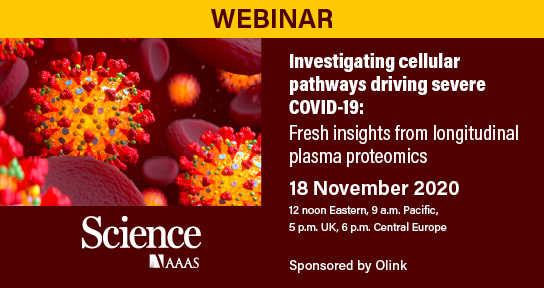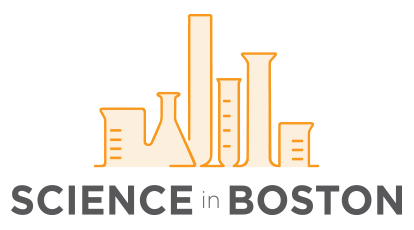Science Events in Boston
Stay up-to-date with all of the life science events taking place in the Greater Boston area with the Science in Boston events calendar! From academia to industry and biotech to pharma, our events calendar is your complete source for life science conferences, symposiums, networking, and workshops in Boston. We even cover science pub nights and science fundraisers!
If you’re interested in promoting your life science event on the Science in Boston events calendar, please use our event submission form.

- This event has passed.
Webinar: Investigating Cellular Pathways Driving Severe COVID-19: Fresh Insights from Longitudinal Plasma Proteomics
November 18, 2020 - 12:00 pm - 1:00 pm

COVID-19 has caused more than 1 million deaths worldwide. Extraordinary research efforts are being made at the lab bench and in the clinic, aided by initiatives such as diverted funding, accelerated publication channels, increased collaboration, and open sharing of data. In order to accelerate research into the pandemic, the “COVID-19 Technology Access Framework” was set up by Harvard University, the Massachusetts Institute of Technology, and Stanford University, to pool resources and ensure that research findings and data are shared rapidly and openly to inform the public health response. Within this framework, researchers from Massachusetts General Hospital recently collaborated with Olink Proteomics to carry out one of the largest longitudinal COVID-19 studies to date. This study aimed to generate new insights into the mechanisms underlying immune responses and disease severity in infected patients by serial measurements of over 1,400 proteins in a cohort of ~400 SARS-CoV-2–infected patients and symptomatic controls. Hundreds of plasma proteins were found to be differentially expressed between COVID-19 patients and controls, as well as between those with mild and severe forms of the disease. Together with cellular and RNA expression analyses, the study also enabled a detailed dissection of both systemic and tissue-specific responses to SARS-CoV-2. This rich dataset of over 1.3 million protein measurements and essential clinical data has been made freely available to the scientific community to facilitate further investigation of pathways underlying severe disease—which may be the basis for early diagnosis of COVID-19 and subsequent clinical intervention.
During the webinar, viewers will:
- Learn how the levels of over 600 plasma proteins differ between infected patients and controls, with a “viral response signature” of multiple cytokines and other proteins identified
- Discover that more than 200 proteins also discriminate between severe and non-severe COVID-19, and that specific proteins are associated with survival or death in those with severe disease
- Hear about the differential molecular and cellular immune responses to SARS-CoV-2 infection at the tissue and systemic level, and gain new insights into tissue-specific cell death signatures and cell-to-cell communication
- Have the opportunity to ask questions during the live broadcast.
This webinar will last for approximately 60 minutes.

